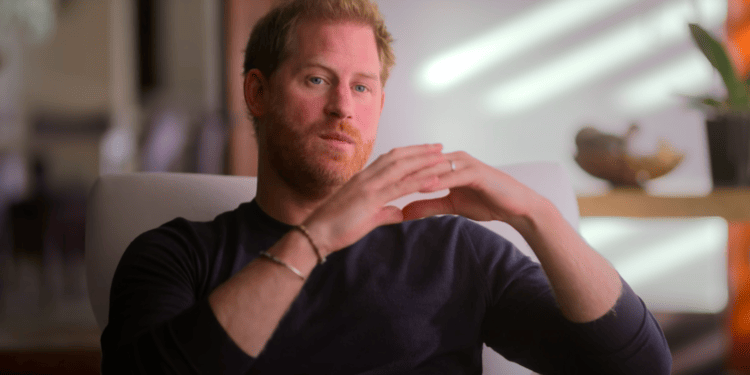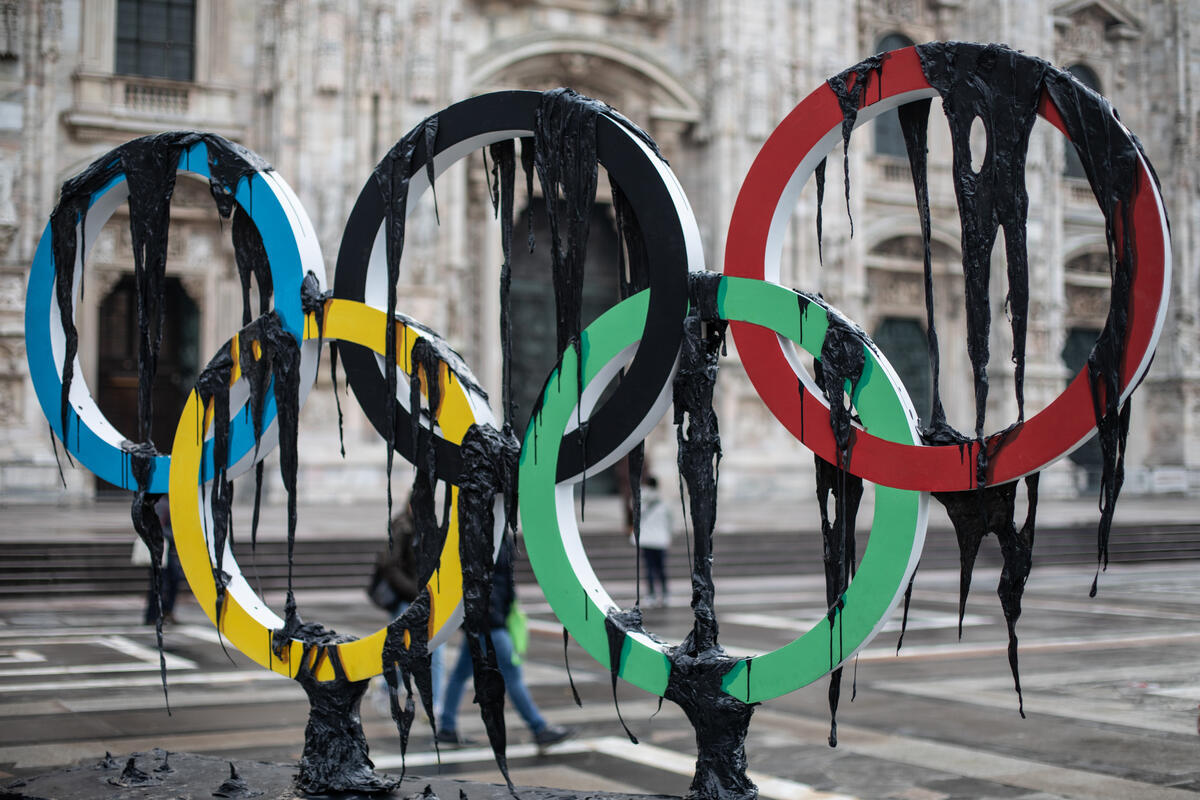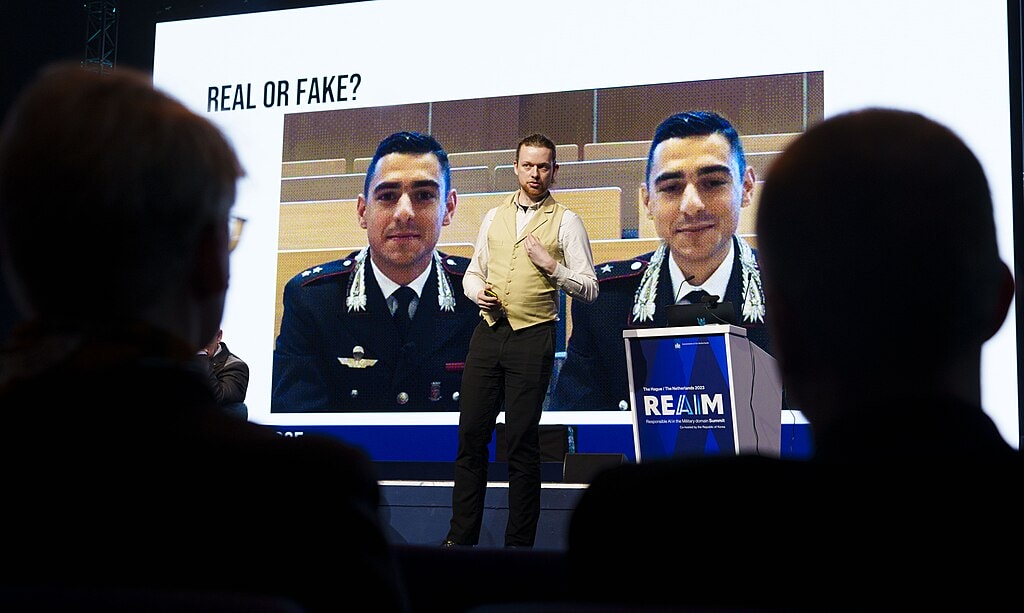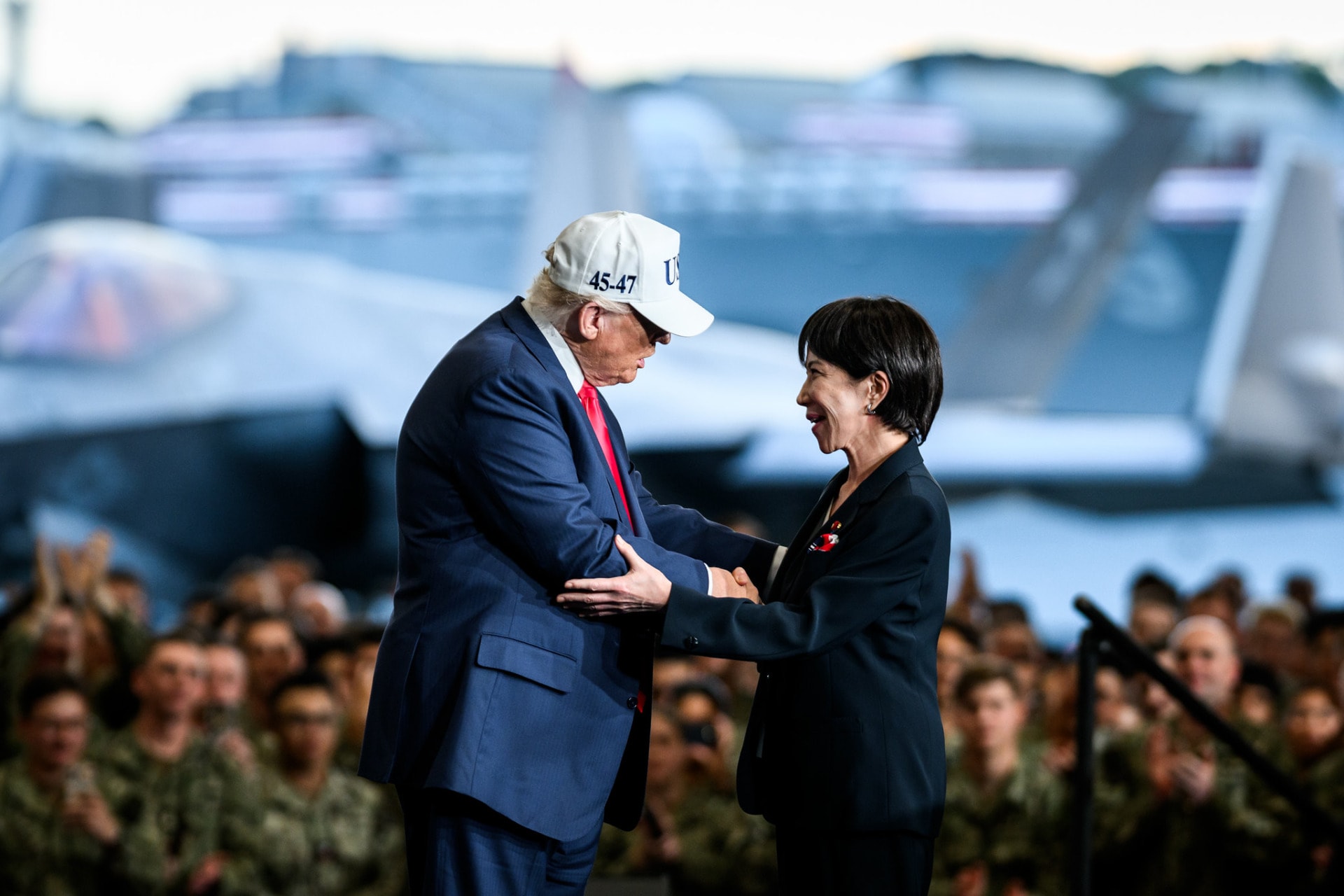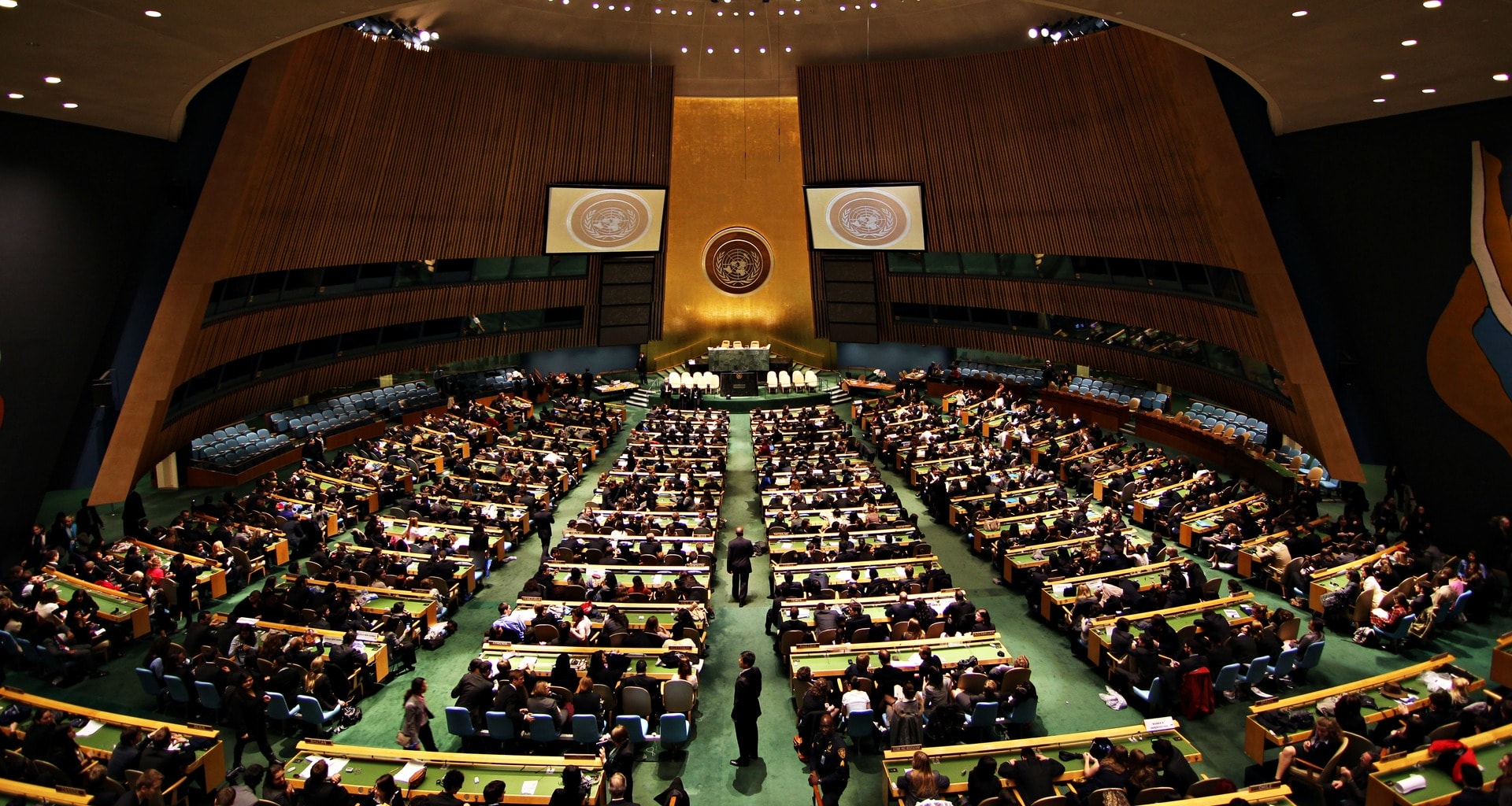Meghan Markle and Prince Harry, the second son of King Charles III and the late Princess Diana of Wales, have been the subject of intense media scrutiny ever since their relationship became public in October 2016.
In the docuseries “Harry & Meghan“, the second instalment of which was released this week on Netflix, the couple attempts to take back control of a narrative that they allege has been controlling them.
The Calm Before the Storm
On some level, the omnipresence of press, paparazzi, and publicity is expected for any high-profile pair, even more so when one of the two was once named the world’s most eligible bachelor and also happened to be a prince in one of the world’s most famous royal families.
However, the media made it clear soon after the two officially announced that they were dating that the real story lay in the eligible bachelor’s new paramour, a woman who was, at the time, a moderately successful actress and activist. She also happened to be American, a divorcee, and biracial.
By dating a divorced American actress, Harry harkened back to the long-ago scandal of his predecessor, King Edward VIII, who had given up the British throne for the sake of Wallis Simpson, a divorced American socialite.
Meghan had a bright spark and a good-natured way with people that reminded many of the last woman to publicly enter into a high-profile royal relationship – the late Princess Diana.
However, these two were not going to neatly fill roles that had been left behind by bygone icons. The couple represented a new generation; they met over Instagram and courted long distance via video chats. Their third date was spent in a tent in Botswana.
They came from separate continents and different racial backgrounds – a living representation of an ever-expanding globalisation that arguably resulted in part from the expansion of the British empire to which Harry is an heir.
Nonetheless, the couple’s love story radiated both timeless romance and youthful modernity – a classic combination that quickly captivated the public. Perhaps the public also collectively recognised the narrative moulds that these characters fit and their tragic outcomes.
One thing was clear – Harry & Meghan were always going to make a great story, no matter how it ended.
The Spotlight Intensifies
Harry was born into the British royal family, and as such, had grown up accustomed to living in the fishbowl of the public eye. The duke describes this experience in some detail in the documentary, touching upon his gradual experience as a child of learning that his family were different and the difficulty of being expected to perform for the media in the days and weeks after his mother’s death.
He also discusses some of the more incendiary headlines that were bandied about during his school-aged days, including accusations of drug use and hard partying. Although he has spoken publicly about this phase of his life before, he neither confirmed nor denied the rumours here but mostly bemoaned their existence in the first place.
As an actress, Meghan was also used to engaging with the press as a public figure. In one clip in the documentary, a former colleague describes both Meghan’s enthusiasm for her work on the long-running American TV show Suits and her frequent congenial interactions with fans.
However, as their relationship grew and became more serious, so too did the couple’s relationship with the British press.
In the series, Harry & Meghan describe the experience of having the media descend upon them, specifically upon Meghan’s home in Toronto. Although an actress and celebrity already, Meghan discusses being unprepared for the level of fame and intrigue that comes with the British royal family.
Only eight days after the relationship became public, Harry released a statement about the extent of this coverage, a choice upon which he also reflects in the Netflix series:
“I put out a statement calling out the racist undertones of articles and headlines that were written by the British press and outright racism from those articles across social media.”
This comment seems to refer to three specific articles, all published by the Daily Mail.
In the first one, a headline says: “Harry’s girl is (almost) straight outta Compton: Gang-scarred home of her mother revealed – so will he be dropping by for tea?”
The second takes an even deeper look into her family history: “How Harry’s American girl’s ancestors were a tailor, a teacher and a cleaner in racially-divided Jim Crow South – while his were ruling the British Empire.”
In the third, a journalist states that if the couple had children, “the Windsors will thicken their watery, thin blue blood and Spencer pale skin and ginger hair with some rich and exotic DNA”.
In the days since the docuseries was published, the Daily Mail has claimed that none of their coverage at the time had racist undertones. They argue that the article about Meghan’s ancestors was complimentary and decline to mention the other two.
The Royal Family and the British Media
However, this ritual of invasive exploitation has essentially become a rite of passage for every member of the royal family. Harry addresses this, saying:
“What people need to understand is, as far as a lot of the family were concerned, everything that she was being put through, they were being put through as well.”
Princess Diana of Wales and King Charles III have both spoken about the intense methods used by paparazzi. In one clip from the series, Charles is seen saying:
“…Cameras poking at you from every quarter and recording every twitch. If you don’t try to work out in your own mind some kind of method for existing and surviving this kind of thing, you would go mad I think.”
The toxicity of the relationship between Princess Diana and the paparazzi is well-documented. Besides the fact that their news at-any-cost methods ultimately cost Diana her life, the toll they took on her emotional well-being and personhood has become more public in recent years.
The British monarchy and the British press media have an unusual, complicated, and in some ways parasitic relationship that boils down to one basic exchange of services. The royal family is expected to exist as fodder for the tabloids, to provide scoops and headlines that will allow the media to monetise their actions, and to willingly play nice with the certain select, favoured journalists who make this happen.
In exchange, by constantly splashing their faces across newsstands, the media helps to maintain the relevance of both this ancient family and the institution, which many view as outdated, that they represent.
This parasitic interdependence is at the heart of the story that Harry and Meghan are telling. The journalist Afua Hirsch foregrounds this issue by stating in the first episode:
“The family is dependent upon the British media to communicate its message, to continue guaranteeing its relevance and presence in the British imagination and the world.”
And so far, this strategy has worked.
In the series, Robert Hazell, author of The Role of Monarchy in Modern Democracy discusses this phenomenon. According to him, the approval rankings of senior members of the royal family typically fluctuate between 60-80%. He goes on to say:
“These are rankings that politicians would die for. In order to survive in the future, they need to maintain that popularity… All the royal households have press offices to ensure that there is pretty constant publicity about the royal family and that it is pretty constantly good publicity.”
The press also mediates the relationship between the royal family and the British people themselves, a relationship which has changed as the role of the monarchy has grown less functional and more symbolic.
The essence of the arrangement was described in simple terms by Tim Burt, who is a strategic advisor to Archewell, the charity organisation founded by the Duke and Duchess of Sussex: “We Pay, You Pose.”
He elaborates, saying:
“The tabloids in the UK have a very special relationship with the royal family. There’s a sort of unwritten contract between the institution and the press, and the way it’s presented in the media is that the taxpayer in the UK pays for the royal family and in return for those payments, there is an expectation that the royal family will be available to the media.”
Afua Hirsch then pinpoints the fundamental issue at the heart of Harry and Meghan’s story:
“I wish there was more introspection about the idea that you can be born into a contractual relationship with the British media.”
Accusations
It is the inner workings of the relationship between the royal family and the British press that Harry and Meghan set out to expose in this docuseries, and they don’t simply aim to make the existence of this unwritten contract public knowledge.
The couple claims that the royal family has used its influence in the media to the unequal advantage and disadvantage of different family members for personal and political reasons.
Through the course of the series, the couple makes a number of incendiary claims, one of which is that different royal press offices, each dedicated to a separate senior member of the family, would routinely bribe an outlet not to publish a story about their “principal” by providing the outlet with a separate “brief” about a different family member.
In one moment, Harry describes having made a pact as a child with his elder brother Prince William, the current heir to the throne, to never do this to each other.
There are also claims that very senior family members actively chose not to interfere in the media’s feeding frenzy on the couple, deciding instead to ensure a positive press around the Prince and Princess of Wales, who, as heirs to the throne, are intended to carry forward the legacy of the British monarchy.
James Holt, a former palace spokesman, states:
“When some people in the institution around the family started to see that this new couple could destabilise the power dynamics…the aim was to put them in a box or make them irrelevant.”
The series places this treatment of Meghan and Harry side-by-side with a claim that Diana also made when the palace realised that she was more popular with the public than Charles. After Meghan recalls being singled out to grace the front page of a tabloid after the family had attended a high-profile event together, a clip of Diana describing a similar situation from decades earlier is shown:
“With the media attention came a lot of jealousy. A great deal of complicated situations arose because of that.”
The Public Reaction to the Netflix Series
It is somewhat challenging to gauge the basic temperature towards the couple in the aftermath of the docuseries, but one thing has been clear – it’s making a splash. The programme has broken the record for the platform’s most-watched documentary series in its first week.
However, within seconds of a Google search about the series, it’s possible to find a hate group on Reddit dedicated to Meghan that has thousands of posts from the last few days, maligning her actions in strong terms alongside a multitude of other hateful comments.
In one of the most controversial reactions yet, Jeremy Clarkson, a prominent English broadcaster and previous host of popular TV series Top Gear, published a column in the Sun saying:
” I hate her on a cellular level. At night, I’m unable to sleep as I lie there, grinding my teeth and dreaming of the day when she is made to parade naked through the streets of every town in Britain while the crowds chant, “Shame!” and throw lumps of excrement at her.”
It is also possible to find examples of people with previously apathetic feelings towards the couple being converted to their story within minutes of watching.
The most nuanced approaches to this story address how this series perfectly demonstrates Harry and Meghan’s ability to play their destined roles as royal entertainers.
By releasing this documentary, surely Harry & Meghan are playing into the exact media frenzy that they claim to be trying to separate themselves from?
This is the fundamental question with which viewers have been grappling.
However, the difference is that, in this documentary, the couple is choosing publicity as a means to an end, which is to offer their version of the narrative. The couple speaks in the documentary about their role as individuals in relation to the press.
Harry mentions that, from a young age, the message drilled into the heads of budding royals is to never react to the intrusive presence of the press. Meghan describes the slightly harsher reality of being told not to interact with paparazzi after making the mistake of being overly nice to them, which generated headlines implying that she was attention-seeking.
There is a fundamental paradox at the centre of media speculation and finger-pointing. It is undeniable that the institution of the monarchy has a tight grip over the British press and that there is a power hierarchy within the family that dictates who has the tightest grip.
So, although the institution has the power to steer the narrative that is presented to the public in one direction or another, individuals within the royal family, especially those who are lower in the hierarchy, have next to no power over their own individual narrative.
Related Articles: Royal Green Suits the New Prince of Wales | Harry & Meghan: The Other (Sustainable) Side | The Upcoming Challenges of King Charles III
In the past six years, the couple has been subject to a media frenzy whose angles were, if you believe them, controlled entirely by others, and Harry and Meghan state that they were simply waiting for the coverage to subside.
After years, and the gradual realisation that they were going to be the royal family’s sacrificial offering to the British press in aeternum, the decision to release this documentary was guided by a simple motive – if the story won’t stop, at least let us be its authors.
There has, of course, been plenty of speculation that the decision to release this documentary now, over two years after having stepped down from royal duties, is financially motivated, since funding from the royal purse has ceased. However, it is worth noting that the couple publicly declared an avowed intention to become financially independent from the royal family at the same time that they announced their resignation.
As of last year, the couple were reported to have a net worth of $10 million, which included Meghan’s continued royalties from Suits, Harry’s inheritance from his mother’s estate, and the value of their home in Montecito, California.
The deal between the couple and Netflix for the documentary, which was worth somewhere between $100 million and $150 million, is undoubtedly one facet of their growing reliance on media deals to fund their lifestyle. They have also entered into a book deal with Penguin and a three-year deal with Spotify to produce podcasts through Archewell Audio.
The Storybook Romance Comes to Life
One of the darts consistently thrown at the couple is that they are trying to control the narrative as if it is somehow wrong to want to take control of the narrative of your own life.
One central complaint from the couple is the idea that their life was not their own, that they had little choice over how they were allowed to act, what they were allowed to do, who they were allowed to be, and how the public would interpret these choices that weren’t theirs, to begin with.
Again, the tone of this documentary bears a striking resemblance to complaints Princess Diana made about her life with Prince Charles – a dissatisfaction that arose from feeling that life as a royal was nothing more than a constructed fiction.
Harry discusses how choices about the direction of his life were being made by senior family figures with the perpetuity of the institution kept at the forefront of the decision-making, rather than his own livelihood. The most striking example of this is the requirement for the Queen to approve his choice of a bride in a ritual that feels like something out of a storybook, and not in a good way.
One article responding to the accusations in this documentary describes Harry and Meghan’s life as a real-life version of the Truman show. The documentary itself draws an analogy between the constructed narrative of the royal family’s history and the writing of a novel.
Harry seems to be frustrated by the fact that, after adhering to the requirements of the monarchy for his entire life, he requested one thing in exchange, that the same monarchy, who notoriously had no problem using their power to control the media narrative about the family, protect his own wife from the same fate that had befallen his mother. Harry states, in one of the more explosive claims from the series:
“They were happy to lie to protect my brother. They were never willing to tell the truth to protect us.”
Now, in a move that resembles the metaliterary surrealism of a Muriel Sparks novel, the characters that the institution created have chosen to break out of their box, take over the narrative, and attempt to destroy the authors who didn’t adequately recognise their importance to the plot.
Why Should the Public Care About Harry & Meghan’s Story?
The couple is now speaking out about their experience, as human beings, of being treated, by both the press and by their family, as characters within a narrative outside of their control that served purposes fundamentally opposite to their own visions of their life.
To many, the constant presence of hounding paparazzi seems a small price to pay for a man who grew up among the wealth of the largest empire in world history, but it was nothing more than the monetary value of a photo that caused that same man to grow up without a mother.
There is something to be said here as well about the separate origin stories of the two people at the heart of this story. Perhaps, Harry is being allowed some element of sympathy because most people can find it in their hearts to pity someone who lost a mother at such a formative age and, crucially, because he never chose the life to which he was born.
However, many have vilified Meghan for choosing to date a member of the world’s most famous monarchy and then “whined” about the presence of the press.
This is a serious trivialisation of a phenomenon that has deeply affected many people who didn’t enjoy the spotlight in which they found themselves, as a result of nothing more than the pursuit of their own passion.
Let’s take Anthony Bourdain as an example. A white man whose story is surprisingly analogous to Meghan’s. He also fell in love. His pursuit of something he loved and something he was good at – writing about food and travel – bestowed an unexpected public audience upon him. This was never his ultimate goal, but he put up with it for a long time because he enjoyed the work that was generating his fame.
From the outside, he had a life that most people would consider extremely luxurious and privileged; the man got to travel and eat for a living.
When Bourdain committed suicide, the outpouring of sympathy for the mental health issues he had hidden from the world was copious and unconditional. It was recognised by the general public as the tragedy that it was.
Meghan found a man she loved; he came with the price of intense fame and media scrutiny. She was good at the role of princess, and originally underestimated the toll of the spotlight. However, when she describes how she has struggled with the unexpected fame and scrutiny that comes with her new and exceptionally “privileged” position, she is met with hate and vitriol.
This is a pattern that other famous women have also faced. Princess Diana went through horrific hazing at the hands of the media, and she had to die before the majority finally saw in her a timeless and revered martyr – the innocent victim of a powerful institution.
Another American currently in a very high-profile relationship with a native Brit, Taylor Swift, famously asked to “be excluded from this narrative, one that I never asked to be part of,” when Ye, formerly Kanye West, simultaneously took credit for her rise to fame and sent her into hiding after generating intense public backlash over the contents of a doctored video that he released.
Like Diana, Swift is now considered the vindicated woman, although it took her ability to rise above media ridicule, in addition to Ye openly declaring himself an anti-semite, before the public would recognise that she wasn’t so bad after all.
Society has an unspoken rule for women that do not apply to men: You must prove that you’re able to withstand our hate before ever being deemed worthy of our admiration.
It’s a predictable trope; history always remembers the women who spoke out more favourably than the men or institutions that tried to silence them for the sake of power. Look to Harry’s own family; does modernity remember Anne Boleyn or Henry VIII as the righteous one from that epoch?
Historically, this institution has been relatively adept at controlling the lives of real people into a narrative that suits their purpose. However, reducing the narrative to an issue of demographics is what tabloids do best, and, in Meghan, the monarchy had the chance of a millennium to reimagine and reinforce its own relevance by bringing a woman of colour, from a former colony no less, very publicly into the fold of their historic family.
At the start of her reign, Queen Elizabeth II stated an avowed choice to spend her whole life in the service of the commonwealth – a commonwealth that is predominantly non-white. At the end of her reign, the Queen could have recognised the importance that the overwhelming acceptance of a biracial princess would have had for the enduring relevance of the monarchy and the institution of the Commonwealth, which is beginning to question its very purpose.
It is entirely possible that, if the narrative Harry and Meghan are offering – that they were actively ostracised from the British royal family – directs the public’s opinion, it could have a long-lasting impact on the longevity of the institution.
Now, the couple is stuck in a quagmire that will be familiar to any person whose identity is formed by the collocation of two distinct and conflicting narratives.
In the docuseries, Meghan describes the common experience for biracial people of being not considered black enough to be accepted in black spaces and not white enough for white spaces. Now, Harry and Meghan are struggling to find sympathy for a similar reason.
They are no longer close enough to the royal family to receive admiration from the traditional places that offer public support to the institution. Simultaneously, they remain too intertwined with the symbols of privilege and oppression that many associate with the crown to receive sympathy from the other sect of Brits who oppose the monarchy. This lack of support from anti-monarchists is slightly ironic, as many are interpreting this docuseries as the couple’s own declaration of own war on the institution.
However, even if Harry & Meghan seem unable to find supporters in any of the traditional fan bases, the appeal of this story lies in the degree to which the Harry & Meghan’s story has always been directed by emotions that are common to all of us.
Who cannot understand the feeling of realising that you are watching your life happen around you, and suddenly discovering the desire to grab ahold of it and direct it yourself? The desire to control your own destiny and your own narrative transcends boundaries of wealth and class.
And beyond the idea that it is every person’s right to choose their own future, there is the couple’s argument that the foundation of this story lies in nothing more or less than love – that single, solitary human emotion that has generated more intrigue, controversy, and narrative appeal than any other aspect of humanity.
The series ends with the declaration from the two that they want nothing more than to live together as a family in peace.
It is the fundamental commonness of these emotions, desires, and motives that has allowed the story of Harry & Megan to provide such riveting entertainment to so many over the past few years; surely the public can now find it in themselves to recognise that these same elements of common humanity are what demand at least some element of public empathy for the story that Harry & Meghan are trying to tell.
And although many will point to the undoubted financial gains that this series has given the couple, surely every person who lives in a capitalist society is equally familiar with monetising their own life experience every day that they go to work. Harry & Meghan’s lived experience simply has more capital value than that of the average person, but, if we as an audience are going to blame them for capitalising on that fact, then surely we should blame the game and not the player. We are the ones talking about the show, aren’t we?
Editor’s Note: The opinions expressed here by the authors are their own, not those of Impakter.com — In the Featured Photo: A scene from an interview with Harry, Duke of Sussex, seen in the new Netflix series “Harry & Meghan”. Featured Photo Credit: Screenshot from Youtube.


